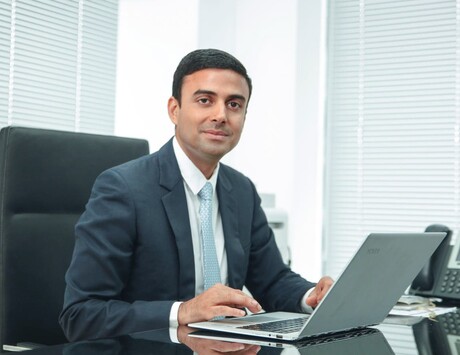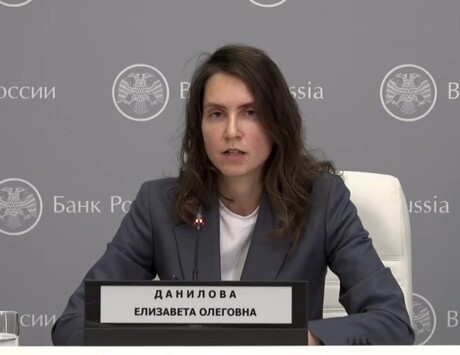Russian billionaire newspaper owner Alexander Lebedev, who backs the opposition movement, expects to go to jail as President Vladimir Putin cracks down on the biggest protests against his rule.
Lebedev, 52, who has $1.2 billion in assets according to Forbes, with interests in banking and media including U.K. newspaper the Independent, has been the subject of a three-year campaign to drive him out of the country, he said in a July 24 interview in his office in a Moscow mansion. He faces potential criminal charges for a brawl with another businessman last year. His National Reserve Bank is under central bank investigation.
Putin, 59, who returned to the Kremlin for a six-year term in May, is cracking down on the opposition after tens of thousands of Russians took the streets to protest alleged fraud in parliamentary and presidential elections. Lebedev is the highest-profile businessman to oppose the Russian leader since jailed former Yukos Oil Co. owner Mikhail Khodorkovsky, who’s serving 13 years in prison under two separate convictions.
Changing Things
“They can put me in jail, destroy my business,” Lebedev said. “Why should I emigrate? I was born here. And I want to change things. Why should I give into threats, blackmail and defamation? I won’t.”
The 30-stock Micex Index climbed for a second day, adding 0.6 percent to 1,376.09 as of 10:56 a.m. in Moscow. Russia’s benchmark gauge trades at five times estimated earnings, having lost 1.9 percent this year. That compares with a multiple of 9.3 times for companies in the MSCI Emerging Market Index, which has dropped 0.7 percent this year. Russian equities have the cheapest valuations based on estimated earnings among 21 emerging markets tracked by Bloomberg.
Lebedev’s other businesses include the London-based Evening Standard newspaper and Russia’s Novaya Gazeta, a newspaper that campaigns against corruption. He’s also financing the anti-graft drive of Alexey Navalny, a leader of the protests who was elected last month to the board of state carrier OAO Aeroflot after Lebedev proposed him as an independent director. The billionaire owns 15 percent of Aeroflot.
National Reserve Bank lost a third of its consumer deposits in the first quarter of 2012 after the central bank investigated its finances last year and again from February to April. In November 2010, masked police raided the bank’s headquarters. Lebedev said almost all of his businesses are subject to tax and other inspections.
Stifling Dissent
“This is a full-scale campaign,” Lebedev said. “I don’t have any doubts that they’ll file charges against me. Someone has decided that I am the main sponsor of the opposition. The authorities want to liquidate all dissent. They don’t want protest meetings, opposition groups or independent media.”
Lebedev is a former lawmaker in Russia’s lower house of parliament and a KGB officer who worked at the Soviet Embassy in London during the Cold War. Apart from Aeroflot and the National Reserve Bank, his holdings include stakes in construction, property and agriculture companies as well as a budget airline, Red Wings.
Together with former Soviet leader Mikhail Gorbachev, Lebedev co-owns Novaya Gazeta. Five reporters for the newspaper have been killed since 2000, including Anna Politkovskaya, shot in the head in her Moscow apartment building on Putin’s birthday in 2006. Politkovskaya’s work alleged corruption under the Russian leader and abuses by security forces in the mainly Muslim region of Chechnya.
No Wars
The government “isn’t waging any wars on honest business,” Putin’s spokesman, Dmitry Peskov, said by phone yesterday.
Lebedev’s “participation in political life couldn’t be a reason for that,” Peskov said. “If he is accusing some government bodies of illegal actions, he should inform us.”
The businessman in February published open letters to Putin and then President Dmitry Medvedev, who now heads the Russian leader’s Cabinet, asking them to intervene to stop the “bandit raid” on his bank.
In November 2010, after the armed search of his bank’s headquarters, Lebedev sent 25 letters to Russian leaders and agencies -- including Putin, Medvedev, the Prosecutor General’s Office and courts -- asking them to stop police from interfering with his businesses.
Tighter Controls
The government has made it more difficult for opposition groups to operate by tightening controls over Internet use and regulating foreign-funded non-government organizations more strictly. It raised fines on unsanctioned protesters 150-fold and made libel a criminal offense.
Police have questioned Navalny and another opposition leader, Sergei Udaltsov, on charges of inciting mass disturbances and violence against officials during a protest on the eve of Putin’s inauguration that ended in clashes with police, a crime punishable by as much as 10 years in jail.
“We are definitely entering a period of political repression,” Navalny’s chief fundraiser, Vladimir Ashurkov, who’s solicited financial help from Lebedev and other wealthy donors. Lebedev’s bank announced this month that it will issue a bank card with 1 percent of all transactions going to Navalny’s Anti-Corruption Fund.
‘Squeeze Liquidity’
The central bank is an “instrument that operates in the vertical of power,” Lebedev said, adding that its aim is to “squeeze liquidity” at his bank and possibly seek to remove its license.
The central bank “is confident it made the correct assessment” during its probe of Lebedev’s bank, First Deputy Chairman Alexei Simanovsky said in an e-mail yesterday. “I can’t remember a single case in which the regulator and bank agreed on all issues.”
Russia is the world’s most corrupt major economy, according to Berlin-based Transparency International’s 2011 Corruption Perceptions Index. The country was ranked 143rd among 182 countries, alongside Nigeria.
Russian investigators opened a criminal case for hooliganism against Lebedev after a physical altercation with property developer Sergey Polonsky during a television show on Sept. 16, 2011.
Polonsky, speaking at a pre-recorded show on the global economic crisis, pointed at other guests including Lebedev saying that he “felt like punching somebody in the face.” Lebedev sprung to his feet first asking Polonsky whether he was “out of his mind” and then hit him, knocking the former property tycoon off a stool.
‘Threatened, Insulted’
If convicted of a criminal charge, Lebedev faces as long as five years in jail.
“There’s nothing to investigate,” Lebedev said. “I was threatened and insulted. Maybe I overreacted, but I certainly didn’t go onto television to attack some innocent person. It’s absurd. I have better things to do. I never attacked anyone before.”
The spat drew attention from Putin, who branded it as “hooliganism” at a Sept. 21 meeting with his All-Russia People’s Front, state-run news service RIA Novosti reported. Lebedev, who joined the Putin supporters’ movement last year in an attempt to ease the pressure on him, said he will quit the front.
“They can’t expel me but in order not to compromise such a wonderful organization, I will resign from it soon,” he said.



